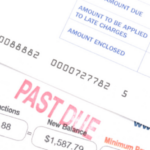Being Sued For Debt
If you are being sued for your unpaid debts, it can be scary and you may not know where to turn.
It may be shocking if you receive a judgment on an unpaid debt and you may not know what to do. Being sued means your creditor has filed paperwork requesting that a judge order you to repay your debt. If, after reviewing all of the paperwork, the judge agrees with the creditor your debt becomes part of the public record and your creditor has a legal claim against you called a judgment. This is a legal determination by the judge that you are now a “judgment debtor” and owe your creditor (now a “judgment creditor”) a certain amount of money. If you do not show up in court, which I do not recommend—you have a much better chance of pleading your case in person–the judge could order a default judgment against you.
A judgment is serious because it takes your case to the next level of debt collection and the unpleasant measures that come with it. These could include wage garnishment, freezing your bank accounts or seizing your property and you may not receive any prior notice. If you find yourself being sued by your creditor, contact a reputable debt attorney who can help you.


